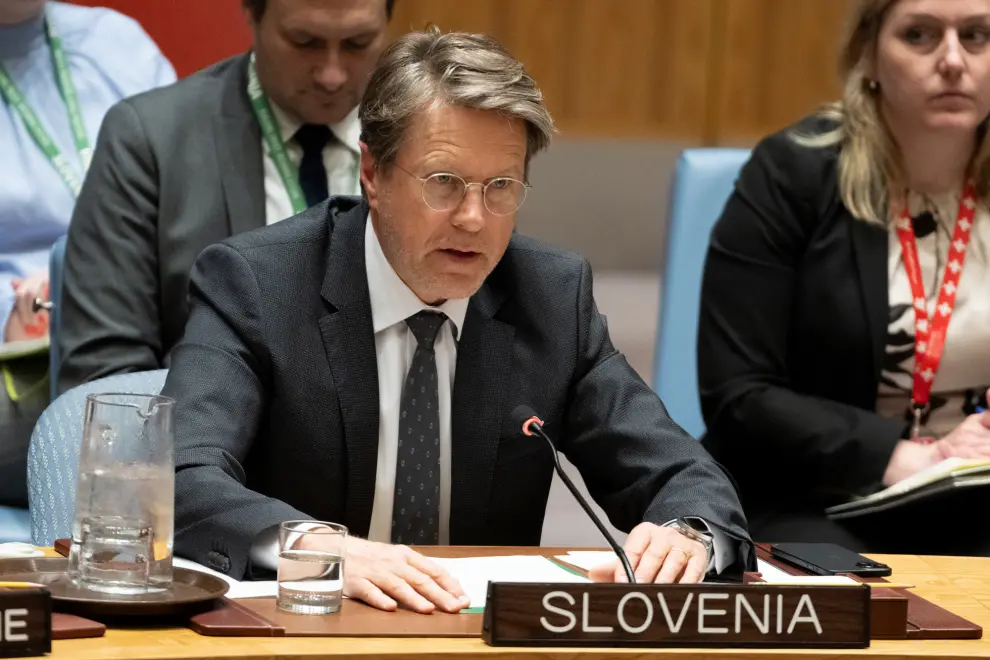Slovenia assumes presidency of the UN Security Council
Slovenia is holding the rotating presidency of the UN Security Council in September, the most eventful month of the year for the organisation as world leaders gather in New York for the general debate at opening of the General Assembly session.
Slovenia will assume the role in earnest on 3 September when it sets out its programme of work to the other 14 Security Council members. The country's representative to the Council, Ambassador Samuel Žbogar has already moved to the president's office.
The main event during Slovenia's one-month presidency will be a high-level open debate called the Leadership for Peace on 25 September during the general debate.
Chaired by Prime Minister Robert Golob, the debate will discuss the relevance of the UN Security Council in the increasingly divided world.
Golob said Slovenia was taking on the role at the helm of the UN Security Council at a challenging time, when the body "seems to be less and less successful in resolving conflicts and its role is limited, although still indispensable".
The prime minister expects a frank exchange of opinions and reflection on the role of the UN Security Council.
"The session on 25 September, during which UN Secretary General Antonio Guterres will report, is intended to prompt the Security Council to introspect on its relevance at a time when the world is heading in the wrong direction. We will focus on three conflicts where we believe the Security Council is not playing the role it should: Ukraine, Gaza, and Sudan," Žbogar said in a recent interview with the Slovenian Press Agency.

Samuel Žbogar, the Slovenian representative to the UN Security Council during the country's 2024-2025 membership of the UN body. Photo: UN Photo
During Slovenia's presidency, there will also be at least three discussions on the Middle East. One will address Israeli settlements in the West Bank, another will focus on humanitarian aid, and an informal meeting with leaders of the Arab League is also planned.
"We will try to steer the discussions toward the future, toward a two-state solution, and how to initiate a political process that will take the initiative away from Hamas and other groups. We support the efforts of the US, Egypt and Qatar to secure a ceasefire, and much can still happen before mid-September," said Žbogar, the EU's former special representative for Kosovo.
Foreign Minister Tanja Fajon pledged for the country to continue to act in a "unifying way, to strengthen the timeless values of the UN and to work for a more consistent adherence to the Charter and the Security Council's resolutions".
Fajon will chair a debate on Afghanistan in mid-September, focusing on women's rights, and a regular session on Israeli settlements in the West Bank a day later. At the end of the month she will chair a closed-door Security Council session with the Arab League leaders.
The presidency is also likely to hold some emergency sessions, possibly on the situation in the Middle East.
Žbogar says that many other crises will have to be tackled in September, notably in Africa, including Sudan.
As the presiding country, Slovenia will make efforts to bring new perspectives to some of the debates. "Our guiding principle will be to listen, understand and talk to each other," Fajon said.
Slovenia will also try to defuse disagreements, at least at the personal level of ambassadors, through "sofa-talks" - informal meetings without an agenda, recently revived by China and resumed by Russia.
Before wrapping up its two-year stint as a non-permanent member, Slovenia will preside over the Security Council one more time, in December 2025.


